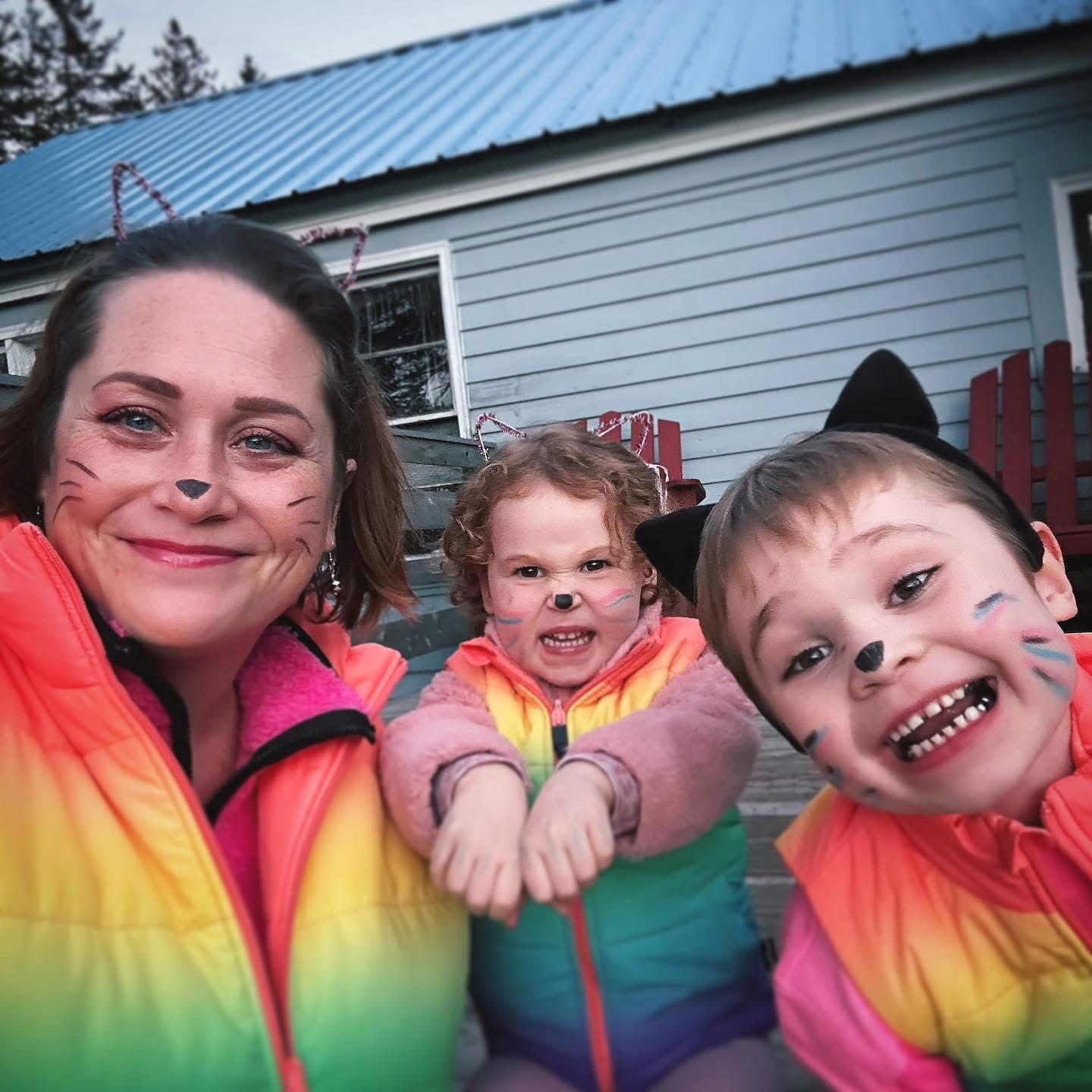
How can they make these decisions when there are real people, real lives at stake?
Kasey McBlais is a resident of Buckfield, Maine, a small, rural town in the western part of the state. She started her journey with MaineCare, Maine’s Medicaid program, in January 2023 after she separated from her ex-husband and became a single mother to two young children: a two-year-old daughter and a five-year-old neurodivergent son.
At that time, Kasey transitioned from full-time to part-time employment to accommodate her son’s limited pre-K schedule, which ran only two days a week. Her son was diagnosed with autism, ADHD, and anxiety, and he required more support than local childcare options could provide. “I couldn’t find suitable childcare within an hour from us,” she said, explaining that was one of the many obstacles that led her to seek public assistance for the first time.
Due to her reduced income, Kasey and her children qualified for MaineCare. The impact, she said, was immediate and life changing. “Since obtaining MaineCare health insurance, I was able to go to therapy to navigate the challenges and aftermath of divorce. I was able to go on an antidepressant and an anti-anxiety medication, which otherwise would have been unaffordable.” MaineCare also allowed her to participate in the RUBI Autism Network parent training program, which helped her better understand and support her son’s needs.
Her son began receiving in-home support from a behavioral health professional. He also enrolled in services at the Glickman Lauder Center for Excellence in Autism and Developmental Disorders, where his medications are managed and where the family will soon begin therapy together. “All of this would not have been possible without our MaineCare health insurance,” Kasey said.
Even if Kasey worked full-time, her employer does not offer health insurance. Instead, they provide a $1 per hour wage increase that employees can put toward insurance costs. “$1 an hour working 27 and a half hours a week wouldn’t even cover it,” she said, though she truly hopes not to remain on state insurance forever, she is grateful for what it has done for her over these last two and a half years.
Kasey acknowledges that she would likely meet any new eligibility requirements, such as proof of employment, but worries about others, “Families like my own who have children with disabilities, among other families, they’re really going to struggle.”
She emphasized the logistical and emotional toll of parenting a child with disabilities, which includes managing appointments, advocacy and constant coordination. “Putting the burden on those families to prove that they have a right to health care, like honestly, it disgusts me.”
If she were to lose MaineCare, Kasey said she might be forced to quit her job to find full-time work that offers health insurance—assuming such a job exists in her rural area. “I would then also have to find childcare for my children. And that’s another significant expense. As a single mom, we don’t have a two-parent household. So yeah, it would be a real ripple effect.”
When asked what she would say to members of Congress about Medicaid and the ACA, Kasey spoke from the heart. “There has to be a moment where the folks that we elect into power… look at us like we’re human beings and we’re not just mouths to feed or a number or a statistic.” She said she would show them a photo of her son Remi. “I would want them to look in his eyes… and ask themselves, how can they make these decisions when there are real people, real lives at stake?”
Add your voice to help us continue to push for the best health and health care for all.
SHARE YOUR STORY